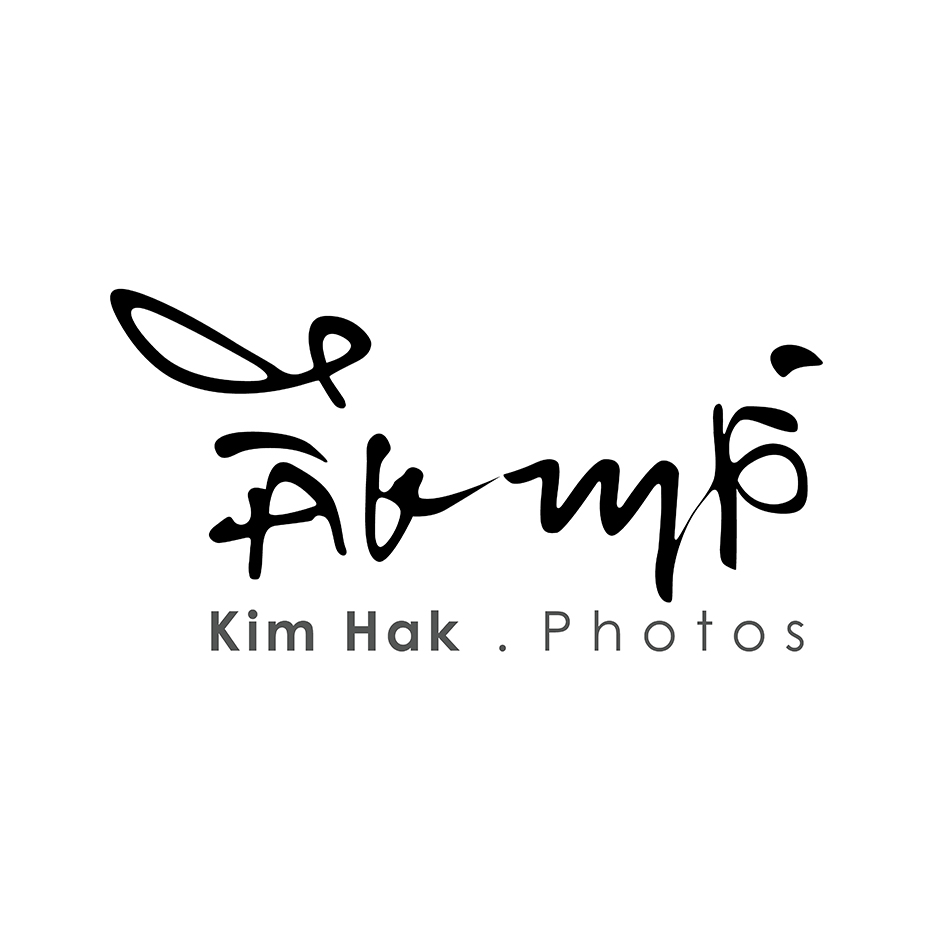Kim Hak’s “Alive IV” Exhibition Revived with Enhanced Content
19 June 2023
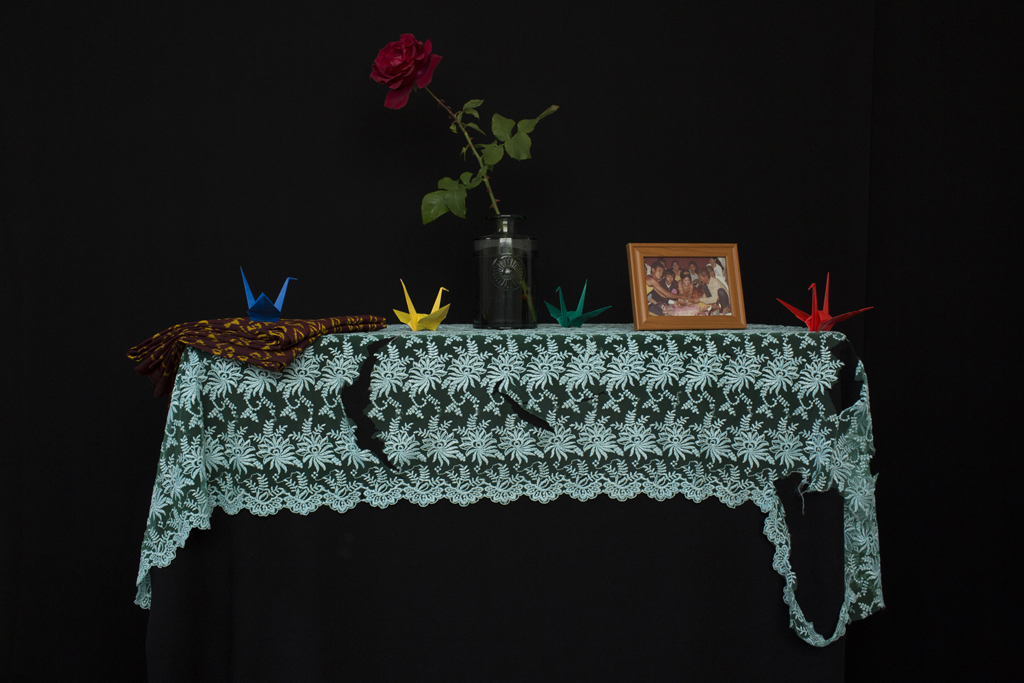
Cambodian artist Kim Hak's photography exhibition “Alive IV” was held from August to September 2022 at Spiral Garden in Minami-Aoyama, Tokyo, and Site-A Gallery in Koganecho, Kanagawa, Japan. The exhibition was a great success, with 40 photographs and texts by Kim Hak shedding light on personal stories buried in the past, and powerfully presenting to viewers the resilience of these people who have survived history, the power of hope, and the importance of connecting to the future.
Following last year's success, this year's exhibition will feature the photographic exhibition now with previously unexhibited works, curated by Phnom Penh, Cambodia-based curator Meta Moeng. The exhibition will also return with a specially-developed public programme that will allow visitors to get a deeper insight into the realities of families who survived the Cambodian Civil War, as well as the launch of an expanded second edition of the exhibition catalogue.
Following last year's success, this year's exhibition will feature the photographic exhibition now with previously unexhibited works, curated by Phnom Penh, Cambodia-based curator Meta Moeng. The exhibition will also return with a specially-developed public programme that will allow visitors to get a deeper insight into the realities of families who survived the Cambodian Civil War, as well as the launch of an expanded second edition of the exhibition catalogue.
Alive, a voluntary organisation, was formed by three women with Cambodian roots from different generational backgrounds in the wake of the Kim Hak 'Alive IV' exhibitions held last year. They aim to encourage people with Cambodian roots living in Japan to value their authentic selves, while emphasising the wellbeing of those who came as refugees from Cambodia, and their families, and leading supporting activities from that perspective.
This event will provide an opportunity for participants to reflect on the realities of refugees, peace and conflict in Japanese society, to become aware of issues as global citizens, to learn about the current state of diversity in Japanese society, and the strength of a society based on diversity.
What is true diversity for the future? We hope this will be an opportunity for everyone, including all generations of people of Cambodian origin living in Japan and visiting audiences, to contemplate their identity and feel proud of it.
A follow-up exhibition will take place in Phnom Penh, Cambodia (19 August - 2 September 2023). Location:Sosoro Museum http://sosoro.nbc.org.kh/
This event will provide an opportunity for participants to reflect on the realities of refugees, peace and conflict in Japanese society, to become aware of issues as global citizens, to learn about the current state of diversity in Japanese society, and the strength of a society based on diversity.
What is true diversity for the future? We hope this will be an opportunity for everyone, including all generations of people of Cambodian origin living in Japan and visiting audiences, to contemplate their identity and feel proud of it.
A follow-up exhibition will take place in Phnom Penh, Cambodia (19 August - 2 September 2023). Location:Sosoro Museum http://sosoro.nbc.org.kh/
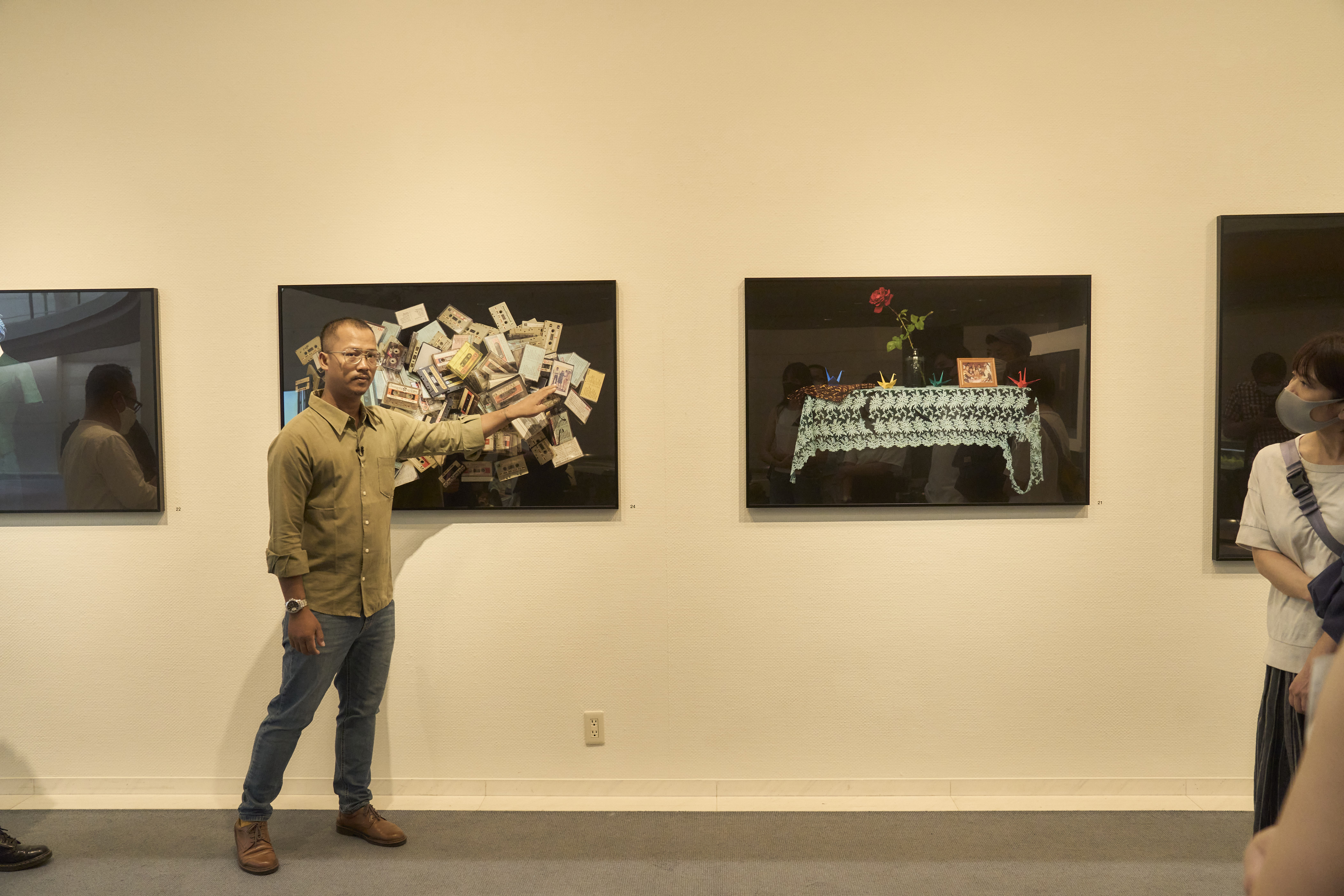
Kim Hak hosting a gallery tour in Tokyo in August 2023
Exhibition Title
Kim Hak “Alive IV”
Curator Meta Moeng
Exhibition Venue
Period: 24 Jun (Sat) - 9 Jul (Sun), 10:00-19:00.
The exhibition is temporarily closed during the Closed Public Programme (Sunday 2 July, 13:00-18:00).
Venue:YOKOHAMA COAST ROOM3
Aso Building, 2-14-9 Takashima, Nishi-ku, Yokohama, Kanagawa Prefecture
TEL. 045-594-7314
Entry is free of charge
Exhibition webpage:https://www.facebook.com/KimHak.Alive4/
Public Programme
24 June (Saturday) 15:00-17:00
'Session 1: Contemporary art and culture: creating new images and key inspirations in post-war Cambodia'
Speakers: Kim Hak (artist of this exhibition), Meta Moeng (curator of this exhibition), Danech San (documentary filmmaker), Lyno Vuth (art collective Sa Sa Arts *online participation), Suong Sokro (archaeologist, professor)
Each speaker will discuss their work and their role in creating new images and important inspirations in post-war Cambodia.
25 June (Sunday) 13:00-18:00
'Session 2: Interactive viewing of Alive IV: issues in Japanese society and personal experiences'
The Alive IV project participants will select a number of works featuring their stories and expand the circle of 'awareness' of what they have seen, felt, and thought about these images through interactive dialogue.
Kim Hak “Alive IV”
Curator Meta Moeng
Exhibition Venue
Period: 24 Jun (Sat) - 9 Jul (Sun), 10:00-19:00.
The exhibition is temporarily closed during the Closed Public Programme (Sunday 2 July, 13:00-18:00).
Venue:YOKOHAMA COAST ROOM3
Aso Building, 2-14-9 Takashima, Nishi-ku, Yokohama, Kanagawa Prefecture
TEL. 045-594-7314
Entry is free of charge
Exhibition webpage:https://www.facebook.com/KimHak.Alive4/
Public Programme
24 June (Saturday) 15:00-17:00
'Session 1: Contemporary art and culture: creating new images and key inspirations in post-war Cambodia'
Speakers: Kim Hak (artist of this exhibition), Meta Moeng (curator of this exhibition), Danech San (documentary filmmaker), Lyno Vuth (art collective Sa Sa Arts *online participation), Suong Sokro (archaeologist, professor)
Each speaker will discuss their work and their role in creating new images and important inspirations in post-war Cambodia.
25 June (Sunday) 13:00-18:00
'Session 2: Interactive viewing of Alive IV: issues in Japanese society and personal experiences'
The Alive IV project participants will select a number of works featuring their stories and expand the circle of 'awareness' of what they have seen, felt, and thought about these images through interactive dialogue.
1 July (Saturday), 11:00-13:00
'Session 3: Parents' Generation Aging and 1.5 Generation Involvement'
The 1.5 generation with Cambodian roots living in Japan will introduce video interviews and survey data on how they had to take on their parents' decisions, their wishes to spend the rest of their lives in Japan, and the accompanying worries, living costs, medical problems and various barriers, in order to find clues to improving the environment for both the 1.5 generation and their aging parents.
9 July (Sun) 13:00-15:00
Session 4: ‘Inter-generational cultural transmission’
A dialogue session between the first and 1.5 generations will be held, with interviews with people who came to Japan in their teens following the Cambodian civil war, about the initial situation they witnessed in their community and their thoughts on inter-generational cultural transmission. The session will also consider what can be done in Japan while introducing examples of inter-generational cultural transmission in France, with a visit from a Khmer classical dance teacher resident in France.
Public programme registration
Please apply below
https://forms.gle/bTCgM7PeXVEvc1Bd8
Official Accounts
https://www.facebook.com/KimHak.Alive4/
https://www.instagram.com/kimhakaliveiv/
Contact
[email protected]
Hosted by:Alive
Support from:Rei Foundation Limited
Alive IV production supported by: Japan Foundation
'Session 3: Parents' Generation Aging and 1.5 Generation Involvement'
The 1.5 generation with Cambodian roots living in Japan will introduce video interviews and survey data on how they had to take on their parents' decisions, their wishes to spend the rest of their lives in Japan, and the accompanying worries, living costs, medical problems and various barriers, in order to find clues to improving the environment for both the 1.5 generation and their aging parents.
9 July (Sun) 13:00-15:00
Session 4: ‘Inter-generational cultural transmission’
A dialogue session between the first and 1.5 generations will be held, with interviews with people who came to Japan in their teens following the Cambodian civil war, about the initial situation they witnessed in their community and their thoughts on inter-generational cultural transmission. The session will also consider what can be done in Japan while introducing examples of inter-generational cultural transmission in France, with a visit from a Khmer classical dance teacher resident in France.
Public programme registration
Please apply below
https://forms.gle/bTCgM7PeXVEvc1Bd8
Official Accounts
https://www.facebook.com/KimHak.Alive4/
https://www.instagram.com/kimhakaliveiv/
Contact
[email protected]
Hosted by:Alive
Support from:Rei Foundation Limited
Alive IV production supported by: Japan Foundation
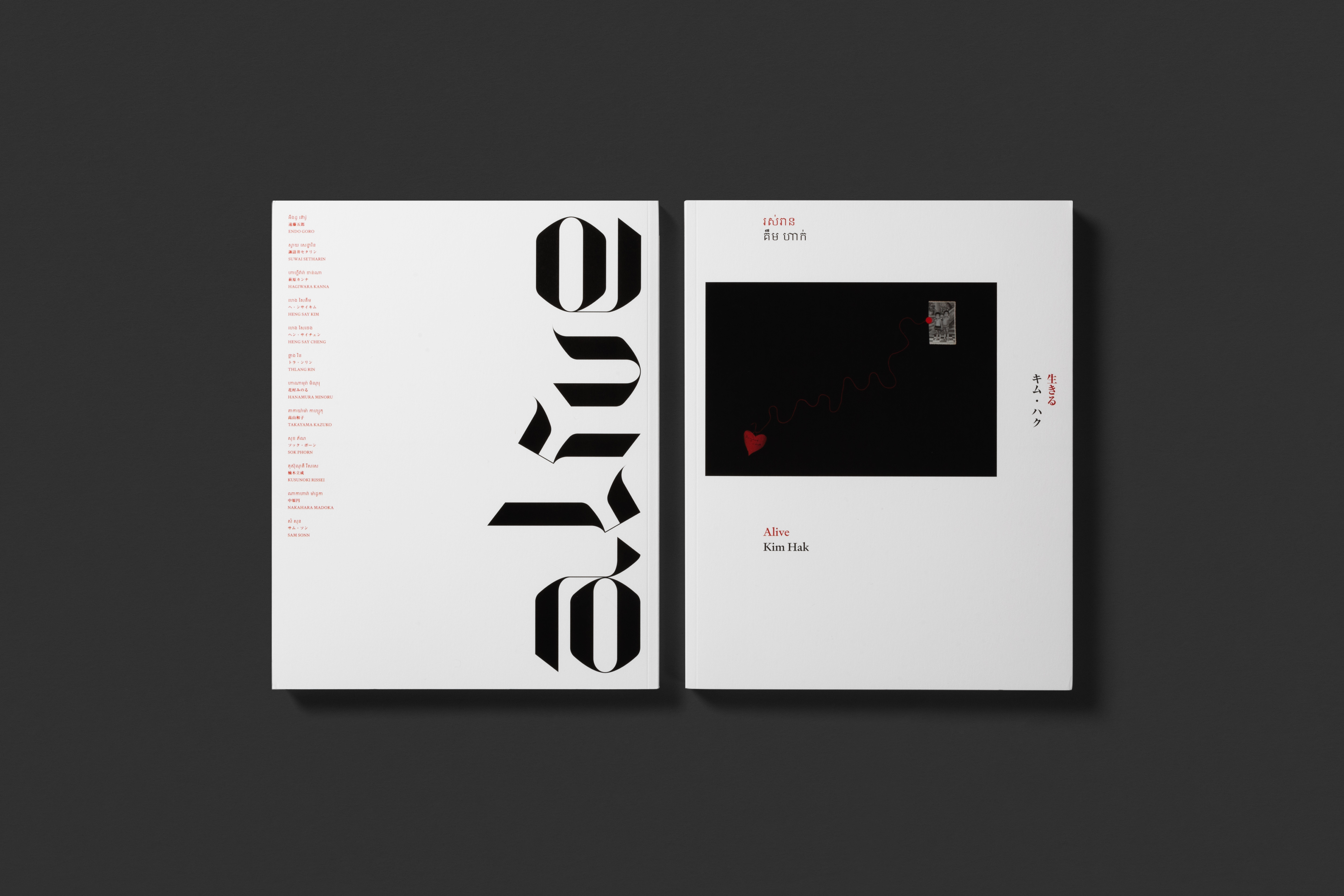
Alive IV catalogue, launch of second edition
The artist's book Alive IV (in Japanese, Khmer and English) was produced in 2022. The second edition of the book will be available for sale, with the addition of four newly captured stories and extra content.
The artist's book Alive IV (in Japanese, Khmer and English) was produced in 2022. The second edition of the book will be available for sale, with the addition of four newly captured stories and extra content.
In addition to all of the Alive IV works produced in Japan and their texts, the book includes a conversation with Kim Hak, interviews with people with Cambodian roots, and essays from researchers.
Price 5,000 yen(tax inclusive)
Price 5,000 yen(tax inclusive)
Kim Hak’s “Alive” series
In Cambodia in the 1970s, many people were forced to flee the country to escape oppression, massacres and war under the Khmer Rouge regime. When they left their homes, they took only a few possessions with them and left their homeland with only the most valuable or most practical items.
Kim Hak, born in 1981, was interested in this history and the personal memories of what happened to his parents' generation. He then started the project “Alive” in 2014, visiting people who survived the Khmer Rouge era and documenting their belongings and their stories. Starting with interviews with his parents, “Alive” has since continued into Chapter 2 in Brisbane (Australia, 2015) and Chapter 3 in Auckland (New Zealand, 2018), creating an opportunity for dialogue between generations about the memories of the past.
In 2020, Kim Hak received a Japan Foundation Asia Centre Fellowship to come to Japan, where he met and created new work around the stories of people with Cambodian roots, mainly in Kanagawa Prefecture. “Alive IV was structured around the stories of 12 Cambodian families, including international students who were unable to return to their country due to the turmoil within Cambodia in the 1970s, and refugees who came to Japan in the 1980s.
Their possessions, such as watches, family photos and earrings, are vessels of memories condensed from their distant homeland and their new land. Kim Hak visited people who experienced those times, took the time to listen to each person's story and documented them in photographs and text. These photographs of personal belongings that emerge with dignity against a black background, and the exhibition sheds light on personal stories buried in the past and quietly and powerfully reflects the resilience of those who have lived these histories.
In Cambodia in the 1970s, many people were forced to flee the country to escape oppression, massacres and war under the Khmer Rouge regime. When they left their homes, they took only a few possessions with them and left their homeland with only the most valuable or most practical items.
Kim Hak, born in 1981, was interested in this history and the personal memories of what happened to his parents' generation. He then started the project “Alive” in 2014, visiting people who survived the Khmer Rouge era and documenting their belongings and their stories. Starting with interviews with his parents, “Alive” has since continued into Chapter 2 in Brisbane (Australia, 2015) and Chapter 3 in Auckland (New Zealand, 2018), creating an opportunity for dialogue between generations about the memories of the past.
In 2020, Kim Hak received a Japan Foundation Asia Centre Fellowship to come to Japan, where he met and created new work around the stories of people with Cambodian roots, mainly in Kanagawa Prefecture. “Alive IV was structured around the stories of 12 Cambodian families, including international students who were unable to return to their country due to the turmoil within Cambodia in the 1970s, and refugees who came to Japan in the 1980s.
Their possessions, such as watches, family photos and earrings, are vessels of memories condensed from their distant homeland and their new land. Kim Hak visited people who experienced those times, took the time to listen to each person's story and documented them in photographs and text. These photographs of personal belongings that emerge with dignity against a black background, and the exhibition sheds light on personal stories buried in the past and quietly and powerfully reflects the resilience of those who have lived these histories.
Artist statement
I started this project “Alive” from my own family’s memory in 2014. After that I decided to expand it to other Cambodian families living inside Cambodia and then Cambodian diasporas who left their homeland to live at different parts of the world after the conflict by using photography as a means to capture the memory of human history. Now we are in a race against time as the living witnesses are gradually disappearing.
Forty years have passed since the Khmer Rouge war, and the people who knew those days are getting older and their remaining time is dwindling. If the living witnesses of war pass away without being recorded, their memories will be lost. If we do not learn from the past, we will repeat our mistakes. This is important not only for Cambodians, but for all mankind.
Most of the objects featured in my photography have been used by families before the war, during the Khmer Rouge regime, at the border camps, and then travelled on a long journey with the victims and survivors to new lands in the host countries and continued to be used as everyday items. Each photograph has a clue that leads to a true story behind each individual object. The objects have been reclaimed, digging them out of the dirty land after the Pol Pot period, or they have been kept throughout the families’ lives.
All of these photographs and objects have profound meanings. They are evidence of a past time in history. War can kill its victims, but it cannot kill the memories of those who survived. Memories must live on in the consciousness of those who live today, to be known and shared, to preserve their legacy for the next generation.
- Kim Hak
I started this project “Alive” from my own family’s memory in 2014. After that I decided to expand it to other Cambodian families living inside Cambodia and then Cambodian diasporas who left their homeland to live at different parts of the world after the conflict by using photography as a means to capture the memory of human history. Now we are in a race against time as the living witnesses are gradually disappearing.
Forty years have passed since the Khmer Rouge war, and the people who knew those days are getting older and their remaining time is dwindling. If the living witnesses of war pass away without being recorded, their memories will be lost. If we do not learn from the past, we will repeat our mistakes. This is important not only for Cambodians, but for all mankind.
Most of the objects featured in my photography have been used by families before the war, during the Khmer Rouge regime, at the border camps, and then travelled on a long journey with the victims and survivors to new lands in the host countries and continued to be used as everyday items. Each photograph has a clue that leads to a true story behind each individual object. The objects have been reclaimed, digging them out of the dirty land after the Pol Pot period, or they have been kept throughout the families’ lives.
All of these photographs and objects have profound meanings. They are evidence of a past time in history. War can kill its victims, but it cannot kill the memories of those who survived. Memories must live on in the consciousness of those who live today, to be known and shared, to preserve their legacy for the next generation.
- Kim Hak
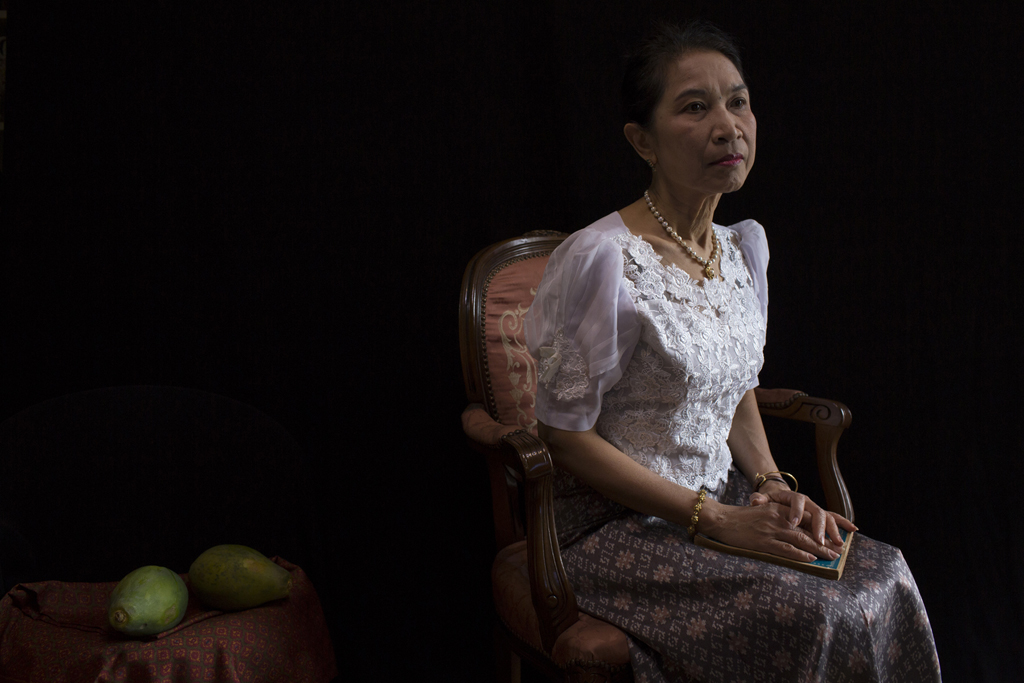
Thinking of siblings and parents. Photograph by Kim Hak.
Artist: Kim Hak
Kim Hak (b. May 05th , 1981, in Battambang City, in the northwest of Cambodia) is a photography artist . Kim Hak was born two years after the fall of the Khmer Rouge regime and he grew up listening to his parent’s memories of that time. Now, he uses his art practice to raise awareness of this country’s past – to remember, reclaim and reinterpret Cambodian social history from before, during and after the Khmer Rouge era. Hak’s work has explored a number of themes related to the cultural fabric of Cambodia, including survivor stories (memory, refugee camps, host countries, Cambodian diasporas, healing process, communities, humanity, and renaissance), the funeral of King Sihanouk, architectural documentation and also the wider changing landscape of his homeland. He has exhibited extensively throughout Asia, Oceania, Europe, Canada and the United States of America. His work has featured internationally at art and photography festivals and has been published in a number of prominent photography journals.
Kim Hak (b. May 05th , 1981, in Battambang City, in the northwest of Cambodia) is a photography artist . Kim Hak was born two years after the fall of the Khmer Rouge regime and he grew up listening to his parent’s memories of that time. Now, he uses his art practice to raise awareness of this country’s past – to remember, reclaim and reinterpret Cambodian social history from before, during and after the Khmer Rouge era. Hak’s work has explored a number of themes related to the cultural fabric of Cambodia, including survivor stories (memory, refugee camps, host countries, Cambodian diasporas, healing process, communities, humanity, and renaissance), the funeral of King Sihanouk, architectural documentation and also the wider changing landscape of his homeland. He has exhibited extensively throughout Asia, Oceania, Europe, Canada and the United States of America. His work has featured internationally at art and photography festivals and has been published in a number of prominent photography journals.
Curator: Meta Moeng
Meta Moeng (b. Phnom Penh, Cambodia) is an independent curator working on contemporary art in Cambodia with an interest in creating a platform for artists, building audiences and art collectors. Her curatorial practice is shaped by collaboration and dialogues with artists. She was selected for curatorial programs including Terms and Conditions of Writing and Publishing Art in Southeast Asia - convened by Afterall and Southeast of Now (2021), Uncommon Pursuits, San Art, Saigon, Vietnam (2018), The Curators Academy, The Goethe- Institute Singapore and TheatreWorks, Singapore (2018). She’s the founder of two experimental community spaces, dambaul (Phnom Penh, 2019), an arts resource home, focusing on building Cambodian Contemporary Art Archives, and the founder of Kon Len Khnhom (Phnom Penh, 2017), an independent art space, focusing on building networks and audience development. She was previously a creative producer for creative generation at Java (2017 2018). She was Community Projects Manager at SA SA BASSAC (2013-2016).
Meta Moeng (b. Phnom Penh, Cambodia) is an independent curator working on contemporary art in Cambodia with an interest in creating a platform for artists, building audiences and art collectors. Her curatorial practice is shaped by collaboration and dialogues with artists. She was selected for curatorial programs including Terms and Conditions of Writing and Publishing Art in Southeast Asia - convened by Afterall and Southeast of Now (2021), Uncommon Pursuits, San Art, Saigon, Vietnam (2018), The Curators Academy, The Goethe- Institute Singapore and TheatreWorks, Singapore (2018). She’s the founder of two experimental community spaces, dambaul (Phnom Penh, 2019), an arts resource home, focusing on building Cambodian Contemporary Art Archives, and the founder of Kon Len Khnhom (Phnom Penh, 2017), an independent art space, focusing on building networks and audience development. She was previously a creative producer for creative generation at Java (2017 2018). She was Community Projects Manager at SA SA BASSAC (2013-2016).
About the host organization Alive
Alive, a voluntary organisation, was formed by three women with Cambodian roots from different generational backgrounds in the wake of the Kim Hak 'Alive IV' exhibitions held last year. They aim to encourage people with Cambodian roots living in Japan to value their authentic selves, while emphasizing the wellbeing of those who came as refugees from Cambodia, and their families, and leading supporting activities from that perspective.
Alive, a voluntary organisation, was formed by three women with Cambodian roots from different generational backgrounds in the wake of the Kim Hak 'Alive IV' exhibitions held last year. They aim to encourage people with Cambodian roots living in Japan to value their authentic selves, while emphasizing the wellbeing of those who came as refugees from Cambodia, and their families, and leading supporting activities from that perspective.
Return to Journal




